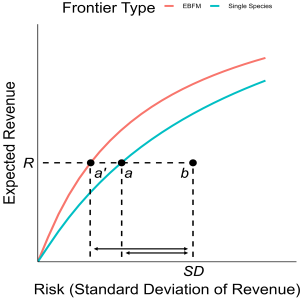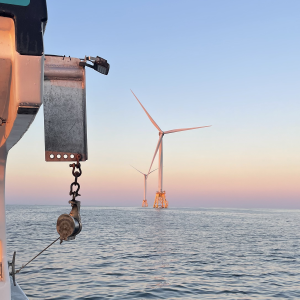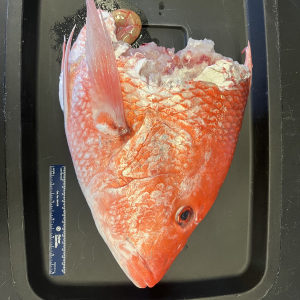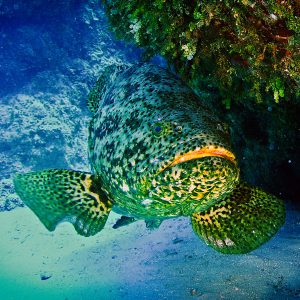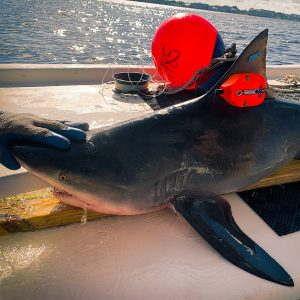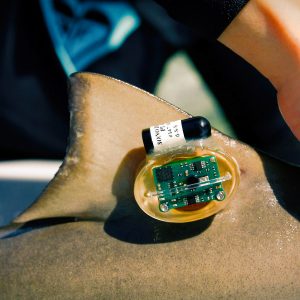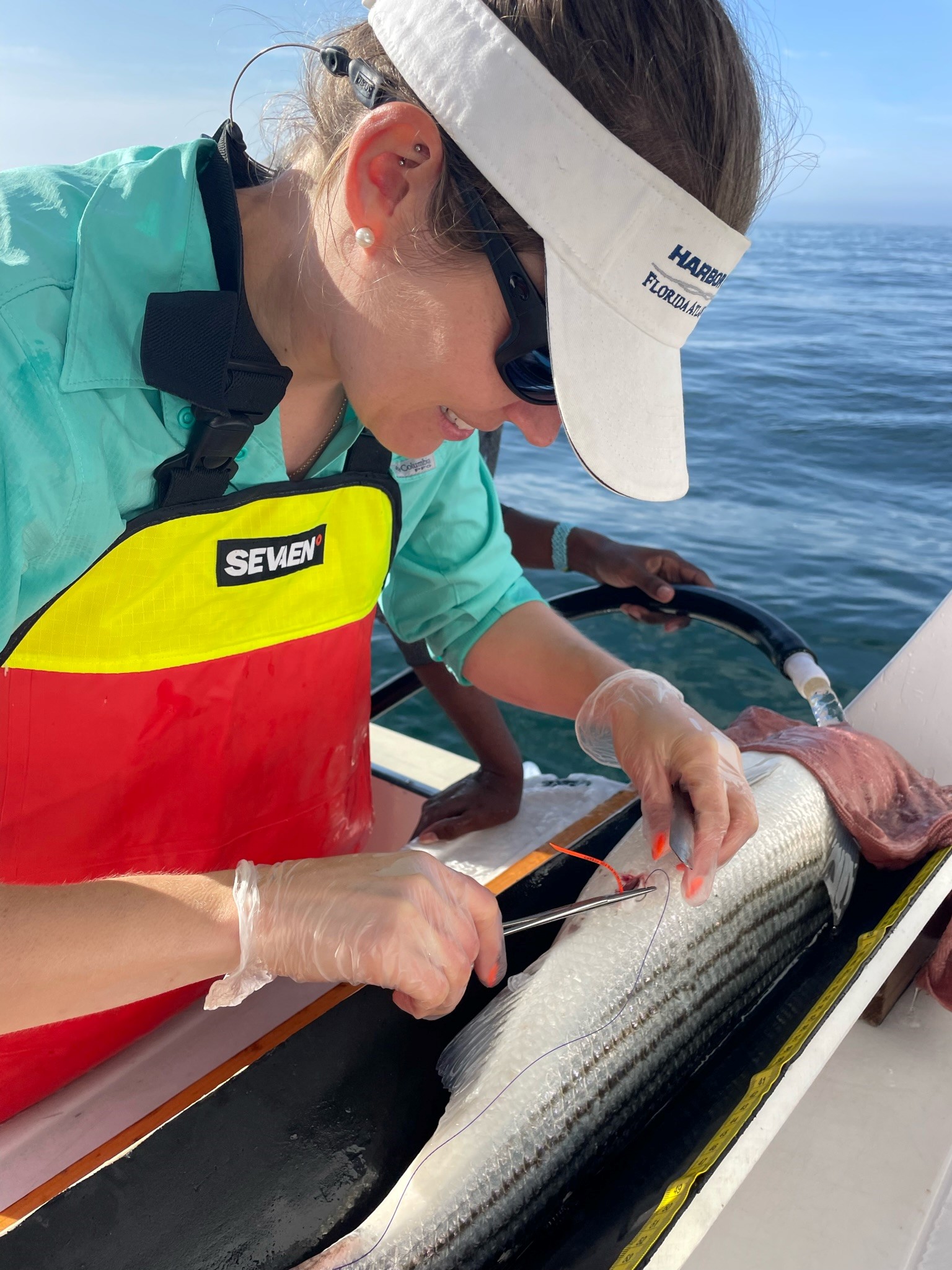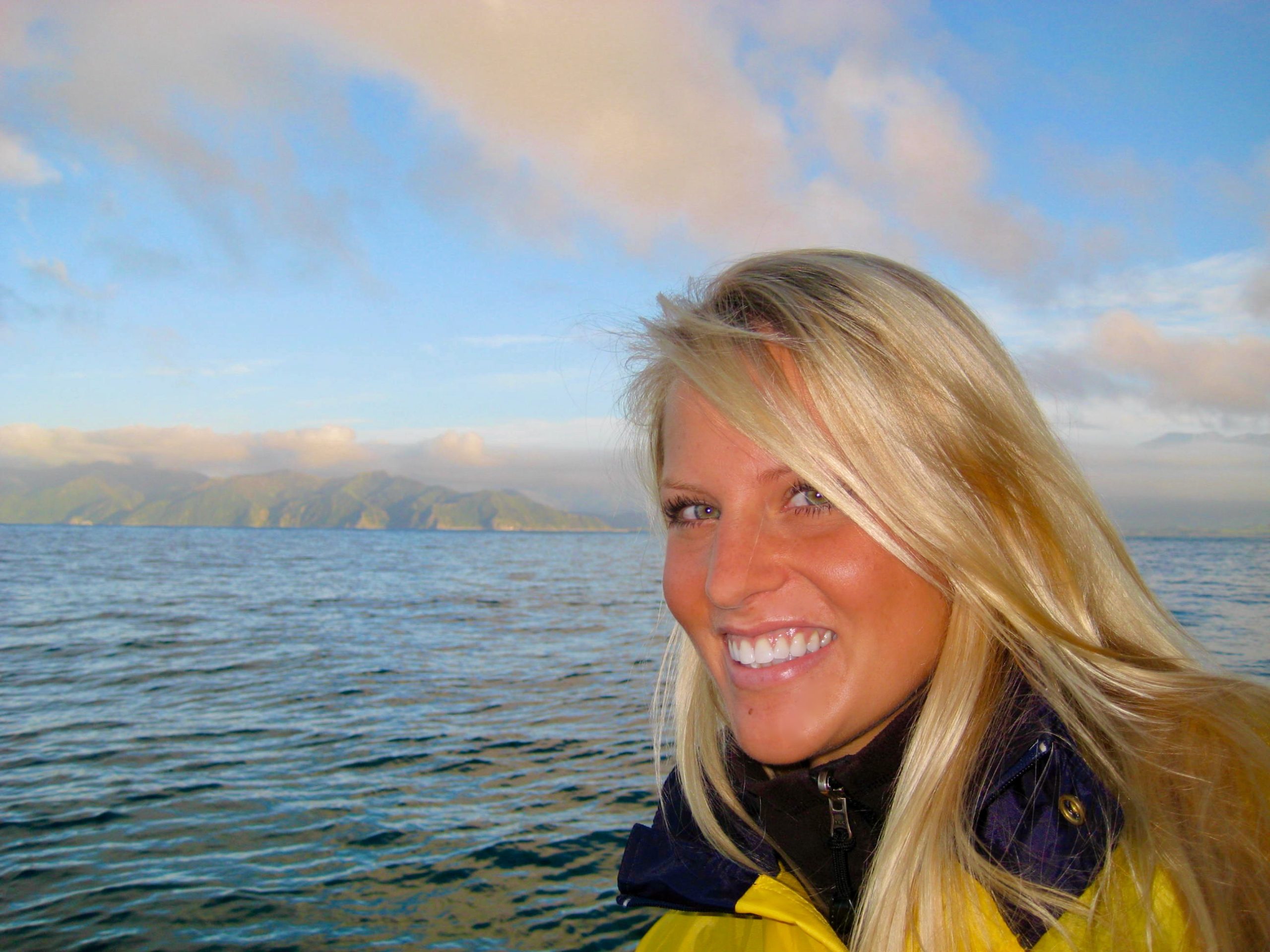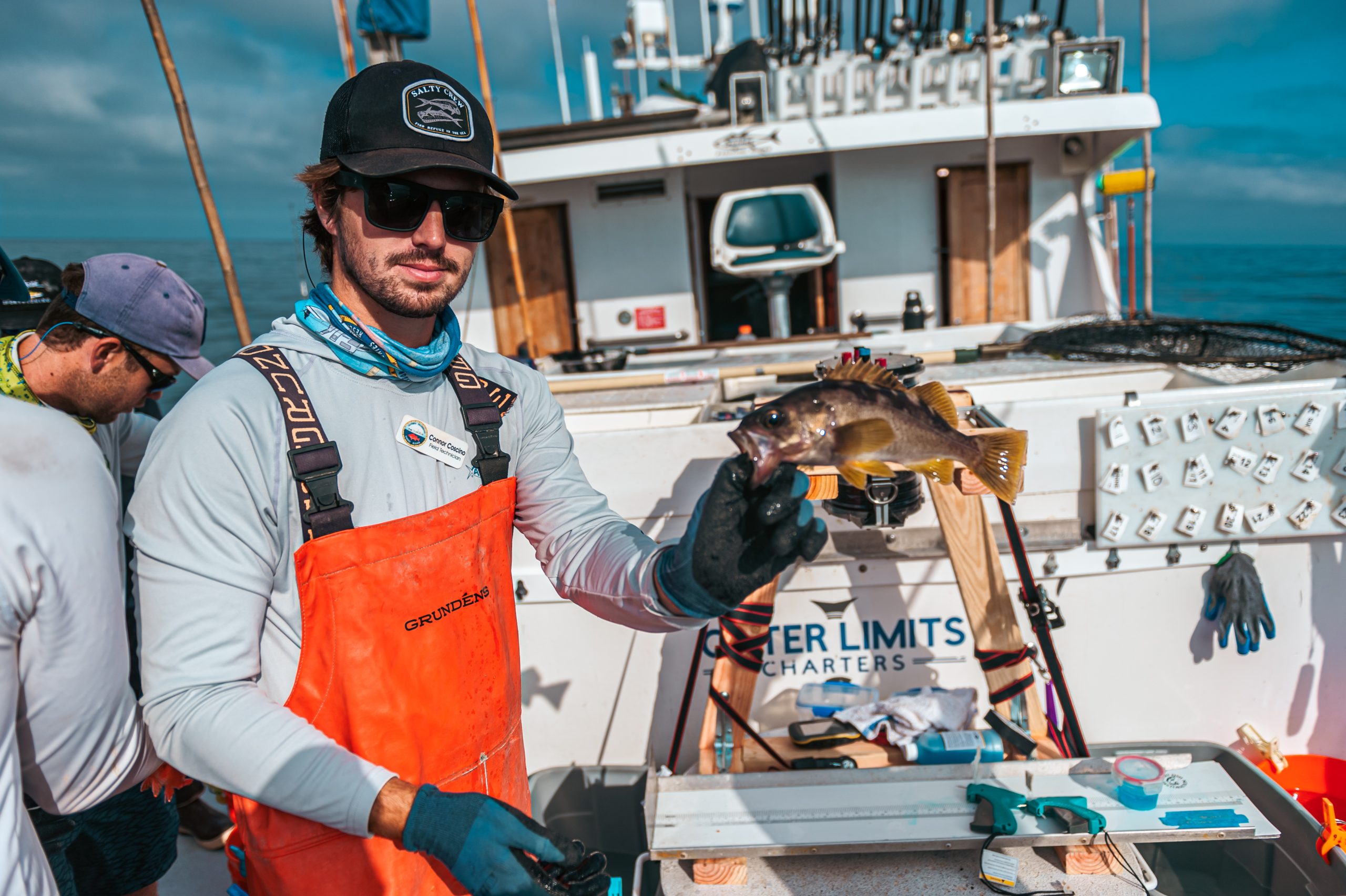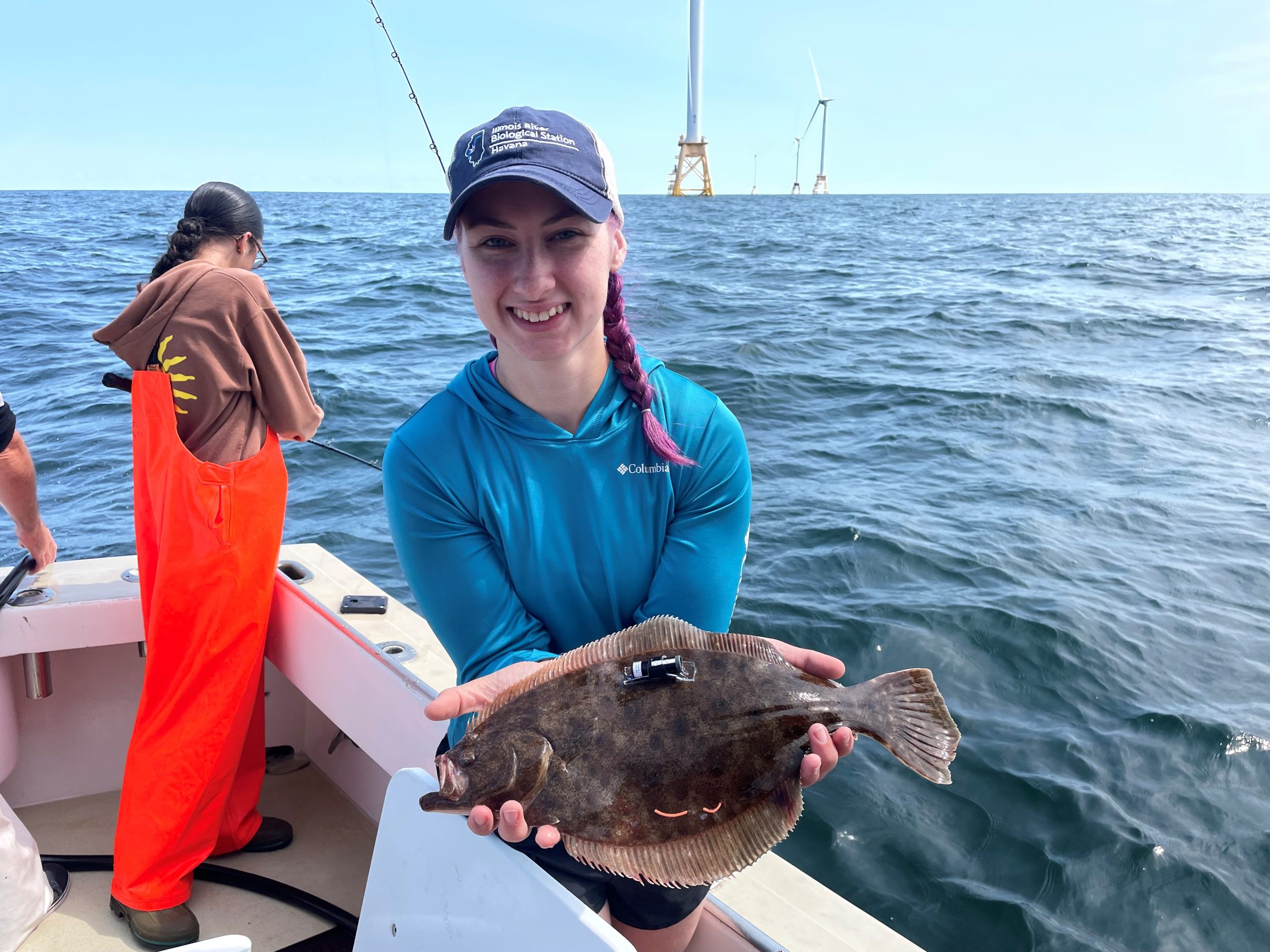
: About
Welcome to the Brewster Lab at the University of Massachusetts Dartmouth School for Marine Science and Technology (SMAST). The lab was established in 2024 and is based in the city of New Bedford, MA. New Bedford is known for its rich maritime heritage and is still one of the most lucrative commerical fishing ports in the United States. Click through the pages to learn more about who we are and what we do!
: People
Dr. Lauran Brewster
Fascinated by fish from a young age, I decided to pursue an undergraduate degree in marine and freshwater biology where I most enjoyed the fisheries and animal behavior classes.
During undergrad I took advantage of opportunities to gain field experience and well… I loved it! After completing my bachelors I went on to do my PhD through the University of Hull, UK and Bimini Biological Field Station, Bahamas. It was during my PhD that I developed an interest in quantitative analyses and machine learning.
After earning my PhD I completed several post-doctoral fellowships in Australia (Mudoch University) and the US (Florida Atlantic University’s Harbor Branch Oceanographic Institute and University of Massachusetts Dartmouth School for Marine Science and Technology; SMAST). I’m now an Assistant Professor at SMAST with interests in how anthropogenic activities and environmental variability can affect the ecology and physiology of fishes. The continued development and miniaturization of animal-borne tags provides an avenue to address important ecological and physiological questions pertaining to animals across a range of sizes and systems and can be even more powerful when used in tandem with other methods (e.g., passive acoustic monitoring, genetics, citizen-science such as working with fishermen).
My general research goals are to:
- Provide scientific data that can be used to inform fisheries management (through single species stock assessment or ecosystem-based fisheries management).
- Understand the spatio-temporal dynamics of fish and how this is impacted by anthropogenic interactions and climatic conditions (e.g., fishing, harmful algal blooms, storms, wind farms, etc.)
- Utilize and improve technological tools (e.g., animal-borne tags, respirometry) and their associated analytical methods to elucidate the fine scale behavior and physiology of wild fish.
Outside of research, I enjoy teaching, mentoring and engaging in activites that promote diversity, equity and inclusion in science.
PhD Students
Lindsay Graff
Lindsay is a PhD student who joined SMAST in the fall of 2022 and is co-advised by Dr. Lauran Brewster and Dr. Greg Skomal. Her research focuses on evaluating and identifying post-release response and behavior of young-of-the-year white sharks (Carcharodon carcharias) captured within the Northwestern Atlantic ocean. The objective of this study is to fill in critical knowledge gaps about how fishery interactions affect white shark conservation and management. Lindsay has a BSc in Zoology from Connecticut College, a MSc in Marine Biology from Northeastern University, and has studied sharks in South Africa, the Bahamas, French Polynesia, Cape Cod, and Fiji.
Connor Coscino
Connor is a PhD student who joined the Brewster Lab at SMAST in fall of 2024. His research focuses on applying ecosystem-based management tools to mid-Atlantic fisheries while integrating climate change effects. Connor graduated from Scripps Institution of Oceanography (SIO) with a Master of Science in spring of 2023. His master’s research centered on applying quantitative length-based methods for data-limited assessments and minimum size limit evaluations on high-value recreational fisheries in California. As an undergraduate and graduate student at SIO, Connor led field research for the California Collaborative Fisheries Research Program (CCFRP) in efforts to evaluate marine protected areas through hook-and-line surveys and citizen science. As a PhD student at SMAST, Connor hopes to continue developing quantitative techniques for better fisheries management.
Master’s Students
Ali Moore
Ali is a MS student who joined the Brewster Lab at SMAST in fall 2024. Her research focuses on assessing the thermal preferences of commercially and recreationally important New England fish species. Through her research, Ali hopes to inform fisheries management in response to environmental changes. While obtaining her BS from the University of Illinois, Ali completed and published undergraduate research analyzing boater behavior related to preventing the spread of aquatice invasive species in Illinois.

: Publications
You can follow me on Research Gate and Google scholar
- Fadool BA, Bostick KG, Brewster LR, Hansell AC, Carlson JK, Smukall MJ. Using a Bayesian Framework to Predict Age and Growth Estimates for the Nurse Shark (Ginglymostoma cirratum) Over 17 Years in Bimini, The Bahamas (2024). Frontiers in Marine Science. doi:10.3389/fmars.2024.1265150
- Brewster LR, Ibrahim AK, Locascio J, DeGroot BC, Chérubin LM, Ajemian MJ. Seasonal dynamics and environmental drivers of Goliath grouper (Epinephelus itajara) sound production in the Gulf of Mexico (2023). Fishes 8.6: 293. doi:10.3390/fishes8060293
- Cahill BV, DeGroot BC, Brewster LR, Lombardo SM, Bangley CW, Ogburn MB, Ajemian AJ (2023). Visitation patterns of two ray mesopredators at shellfish aquaculture leases in the Indian River Lagoon, Florida. Plos one 18.5: e0285390. doi:10.1371/journal.pone.0285390
- Edwards ML, McCallister M, Brewster LR, Bangley C, Curtis T, Ogburn M, Ajemian MJ (2022) Multi-year assessment of immature bull shark Carcharhinus leucas residency and activity spaces in an expansive estuarine nursery. Mar Ecol Prog Ser 695: 125-138. doi: 10.3354/meps14113
- Brewster LR, Ibrahim AK, DeGroot BC, Ostendorf TJ, Zhuang H, Cherubin LM, Ajemian MJ (2021). Classifying Goliath Grouper (Epinephelus itajara) Behaviors from a Novel, Multi-Sensor Tag. Sensors. doi: 10.3390/s21196392
- Byrnes E, Lear KO, Brewster LR, Whitney NM, Smukall MJ, Armstrong NJ, Gleiss AC. (2021) Accounting for body mass effects in the estimation of field metabolic rates from body acceleration. J. Exp. Biol. 224 (7): jeb233544. doi:10.1242/jeb.233544.
- Brewster LR, Cahill BV, Burton MN…. M.J. Ajemian (2020). First insights into the vertical habitat use of the white spotted eagle ray Aetobatus narinari revealed by pop-up satellite archival tags. J. Fish Biol. doi:10.1242/jeb.146993.
- DeGroot B, Roskar G, Brewster LR, Ajemian MJ (2020). Fine-scale Movement and Habitat Use of White Spotted Eagle Rays, Aetobatus narinari, in the Indian River Lagoon. Endanger Species Res. doi:10.3354/esr01047.
- Lear KO, Whitney NM, Morgan DL, Brewster LR, Whitty JM, Poulakis GR, Scharer RM, Guttridge TL, Gleiss AC (2019) Thermal performance responses in free-ranging elasmobranchs depend on habitat use and body size. Oecol 191(4). 829-842. doi:10.1007/s00442-019-04547-1.
- Hounslow JL, Brewster LR, Lear KO, Guttridge TL, Daly R, Whitney NM, Gleiss AC (2019) Identifying optimal sampling frequencies for behavioural classification of accelerometer data. J. Exp. Mar. Biol. Ecol. 512: 22-30. doi:10.1016/j.jembe.2018.12.003
- Brewster LR, Dale JJ, Guttridge TL, Gruber SH, Hansell AC, Elliott M, Cowx IG, Whitney NM, Gleiss AC (2018) Development and Application of a Machine Learning Algorithm for Classification of Elasmobranch Behaviour from Accelerometry Data. Mar Biol. doi:101007/s00227-018-3318-y.
- Lear KO, Whitney NM, Brewster LR, Gleiss AC (2018) Treading water: respirometer choice may hamper comparative studies of energetics in fishes. Mar Freshwater Res. doi:10.1071/MF18182.
- Hansell, AC, Kessel ST, Brewster LR, Cadrin SX, Gruber SH, Skomal GB, Guttridge TL (2017) Local indicators of abundance and demographics for the coastal shark assemblage of the eastern waters of Bimini, Bahamas. Fish Res: 34-44. doi:10.1016/j.fishres.2017.09.016.
- Lear KO, Whitney NM, Brewster LR, Morris JJ, Hueter RE, Gleiss AC (2017) Correlations of metabolic rate and body acceleration in three species of coastal sharks under contrasting temperature regimes. J Exp Biol: jeb. 146993. doi:10.1242/jeb.146993.
- Brewster LR (2017) Behavioural Energetics of the juvenile lemon shark (Negaprion brevirostris) in Bimini, Bahamas. PhD thesis. University of Hull
Technical Reports
- Brewster LR, Edwards F, Link J, Cadrin SX (2023). Using Portfolio Theory to improve the management of living marine resources. A demonstration for South Atlantic Fisheries. Report to South Atlantic Fishery Management Council’s Scientific and Statistical Committee and Socioeconomic Panel.
- Brewster LR, Edwards F, Link J, Cadrin SX (2023). Using Portfolio Theory to improve the management of living marine resources. A demonstration for New England Fisheries. Report to New England Fishery Management Council’s Scientific and Statistical Committee.
- Hansell A, Alade L, Allyn A, Brewster LR, Cadrin S, Kerr L (2022). Spatio-temporal dynamics of American plaice (Hippoglossoides platessoides) in US waters of the northwest Atlantic. American Plaice Research Track Working Group.
- Hansell A, Brewster LR, McManus C (2022). Spatio-temporal dynamics of Spiny Dogfish (Squalus acanthias) in US waters of the northwest Atlantic. Spiny Dogfish Research Track Working Group.

: Opportunities
Prospective students should send me an email that includes:
- A short summary of your interests, career goals and why you want to come to SMAST.
- Your CV (including GPA).
- Unofficial transcripts
- An example of your scientific writing.
This article provides useful advice on sending an email to potential advisors. Please note for admission to SMAST applicants must have a GPA of 3.0 or higher. The application criteria is outlined here.
I try to respond to all emails, but if you haven’t heard back from me within a couple of weeks, please feel free to follow up.

: Teaching
Teaching Philosophy
I gained my initial teaching experience in an academic setting at Florida Atlantic University (FAU) where I was given the freedom to design and teach a graduate level class. During the development process I deliberated over my own undergraduate and graduate school experience, determining what inspired me as a student and identifying areas that I felt could have been improved. I simultaneously completed The Association of College and University Educators (ACUE) “Course in Effective Teaching Practices” which introduced me to many teaching tools and the supporting pedagogical scientific literature. These experiences have molded my teaching philosophy, which focuses on three core principles: 1) active learning within a supportive environment promotes critical thinking and engages students; 2) students should work toward meaningful projects; 3) students and instructors can learn and evolve together.
Promoting active learning. Research has demonstrated that requiring students to actively engage with course content, and their peers, promotes higher order thinking and knowledge retention (Davidson & Major, 2014). From the first day, class activities should reflect the level of student engagement that is expected throughout the semester and be designed to foster a sense of community that encourages all students to participate. Course content should be carefully selected to allow time for regular active learning activities; covering more content through traditional lecturing does not equal greater knowledge acquisition. Further, active learning strategies can have additional benefits (e.g., promoting self-esteem and developing interpersonal skills) that are central to career progression. I aim to include active learning strategies that allow students to pursue avenues—within the scope of the class—that are relevant to their graduate work, while simultaneously aligning these activities with course outcomes. For example, during a think-pair-share session, students were required to discuss and present their perceptions of the most important applications of bio-logging (animal tagging). One student from each pair was then called upon (promoting individual accountability) to present their ideas. As the students had diverse interests, ranging from oceanography to animal health, this promoted an engaging, multifaceted group discussion.
Students should work toward meaningful projects. A common complaint I hear from students is having to enroll in courses they perceive as having no long-term value to them. I try to design class activities and assignments so they promote development of meaningful career-related skills. Highlighting the importance of these skills when an activity or assignment is set, helps increase student motivation and satisfaction. For example, the chief assignment for the course I designed included writing a manuscript, in pairs, on which the students were graded. On the first day of class the students were informed that a class outcome was to combine the best parts of their manuscripts to form the basis of a peer-reviewed publication. The students were invited to be co-authors on the publication if they met the stipulated requirements. This assignment allowed opportunities to: discuss ethics of authorship contributions, work collaboratively, identify pertinent research questions, develop analytical skills, peer-review each other’s work and be involved in the manuscript submission process. While the topic of the paper itself was not directly relevant to every student’s graduate work, they gained experience pertinent to their professional development. This resulted in exceptionally positive student feedback at the end of the class and was reflected in their individual grades.
Students and instructors can evolve together. Research indicates that soliciting feedback throughout the semester can improve student learning, enhance motivation and positively alter student attitudes towards even the most challenging classes (Davis, 2009). I request that all students complete three anonymous surveys throughout the semester. The pre-semester survey allows me to understand their background and expectations for the class, so that I can tailor it where possible and address any misconceptions from the outset. This is particularly important as research demonstrates that student motivation, and thus grades, can be influenced by their experience on the first day of class (Nilson, 2010) and that students learn best when they know what is expected of them. The mid-semester survey allows me to obtain feedback on which teaching methods work best for them so that I can adjust accordingly during the semester. This simultaneously provides an opportunity for me to improve my teaching and demonstrates my interest and concern for their learning, resulting in positive attitudes towards the course and improved grades. Finally the end-of-course evaluation allows me to make adjustments to the course and refine my teaching for the future.
Teaching is a skill that can continually evolve. I strive to improve my teaching ability by finding evidence of what has and has not worked for my students through feedback mechanisms—such as surveys and course assessments—and reflection on student achievement (e.g., analysis of assignment or test results). I put the students at the center of their own learning by using active learning techniques appropriate to the class-size (e.g., think-pair-share, jigsaw, peer review: divide and conquer, polls). By endeavoring to design class activities and assignments that are not only well aligned with the course outcomes but can effectively engage the most timid or underprepared student, I believe all students can benefit.
Student Advisement
2022–current: University of Massachusetts Dartmouth, PhD Student, A. Frey
2022–current: University of Massachusetts Dartmouth, PhD Student, F. Edwards
2022–current: University of Massachusetts Dartmouth, PhD Student, S. Merhoff
2022–current: Florida Atlantic University, PhD Student, C. Morgan
2019–2021: Harbor Branch Oceanographic Institute, MS, M. Edwards
2020: Harbor Branch Oceanographic Institute, Summer Internship Program. K. McColluch
2019: Harbor Branch Oceanographic Institute, Summer Internship Program. E. Mullen
2018: Murdoch University, Perth, WA. BS, J. Hounslow, C. Norris (Honors thesis)

: Grants and Awards
- 2022 NOAA/NMFS Bycatch Reduction Engineering Program FY22 (Co-PI)
- 2021 NOAA/NMFS Co-operative Research Program FY21 (Co-PI)
- 2021 Mote Scientific Foundation
- 2020 Save Our Seas Foundation Small Grant
- 2017 Endeavour Research Fellowship
- 2016 Prof Roland Ennoes Research Fund
- 2016 University of Hull Conference Travel Fund
- 2015 Fisheries Society of the British Isles Student Bursary
- 2014 American Elasmobranch Society Student Travel Award
- 2013 European Elasmobranch Association Student Travel Award
- 2012–2015 Bimini Biological Field Station Foundation Fellowship
- 2008 University of Hull Academic Achievement Scholarship

: Contact me
LET’S TALK
Please get in contact, if you would like more information about the work I am involved in.
You can email me direct, or use the Contact Form below. My email is: lbrewster@umassd.edu

